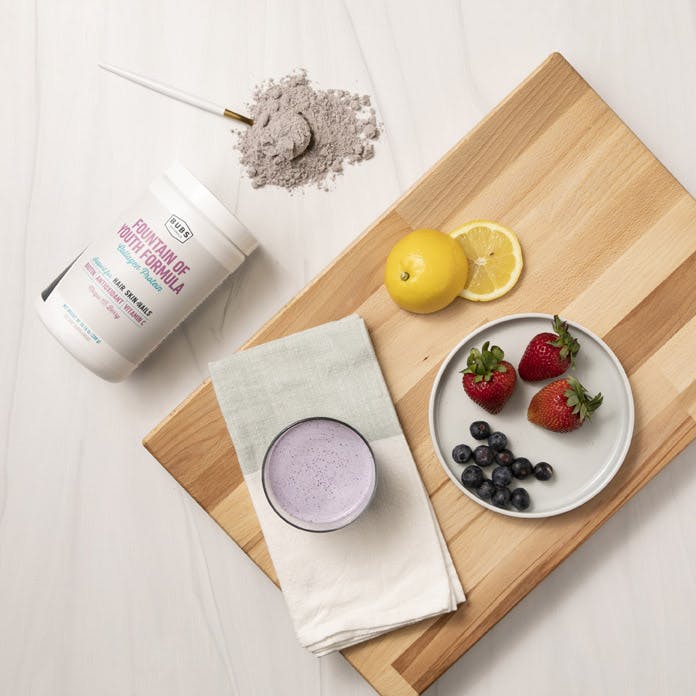
What to Do When You Overeat
Sean Lake
over 2 years ago
Nothing is better than a good holiday meal. The holidays are a time to enjoy quality time, be with family, and get back to what matters most. With those holiday meals comes a less desired sign of the seasons: overeating. Overeating has been shown not only to lead to weight gain, but overwork the digestive system to disrupt regular sleep patterns and cause heartburn as well. These undesirable effects of overeating ultimately prevent you from fully enjoying those around you, so it’s important to understand how to avoid the negative effects of overeating.
What can happen to your body when you overeat?
•
Heartburn. Your stomach’s main job is to produce hydrochloric acid to kill bacteria and begin the digestive process. Your stomach acid allows for the digestive system to absorb nutrients and keep you functioning. When you overeat, your body produces an excess of acid, which can make its way to your esophagus. This creates the uncomfortable feeling of heartburn associated with overeating.
•
Bloating. More food, more gas. As your stomach works to digest more food, digestion slows down within your system. This extended digestive process creates gases which leads to bloating, leaving an uncomfortable feeling in your stomach.
•
High Blood Sugar. Many favorite holiday dishes are loaded with added sugars and carbohydrates. When you overeat, your body creates an excess of insulin. While this rise in blood sugar may allow for a temporary energy boost, it is quickly followed by a crash. Along with this, your body signals that it does not need more energy, and stores the rest of the calories as fat instead of the fuel you need.
•
Headache. You may experience a headache after your sugar crash. Overeating can also cause brain fog as your body sends more blood to the gastrointestinal tract. This leaves less blood for the brain, causing mental fogginess or lightheadedness.
•
Fatigue. Overeating has been shown to cause insomnia as your body works overtime to digest the excess food in your system. This can lead to fatigue and can throw off your body’s normal sleep cycle.
How do I ease digestion?
As overeating can seriously affect your body’s function, it is important to know how to ease digestion. Taking care of the gut allows you to be happy and healthy while spending quality time with family and friends over the holidays. With this in mind, here are a few do’s and don'ts after you overeat.
The Do’s and Don'ts After Overeating
Paying attention to how your body feels is crucial to maintaining a sense of well-being.
DON’T take a nap.
The holiday nap can be as much of a time-honored tradition as the meal itself. However, avoiding the nap can help aid your system that is already under pressure. Napping after overeating not only prevents the possibility of burning some excess calories, but can also cause acid reflux. As your body lays down, food can leave the stomach and slow digestion. Avoiding laying down is a key way to prevent the more uncomfortable effects of overeating.
DO go for a walk.
Take advantage of the fresh air and quality time with those you care about by going for a stroll. Unlike laying down, a walk can be a step in the right direction as it can boost digestion and help control blood sugar. Walking is also a less strenuous form of exercise, which means you are still moving, but not taking blood away from digestion. Before getting back into the major workouts, walks can help digestion in a natural way.
DON’T consume carbonated beverages.
The bubbles in carbonated beverages introduce more gas to the system. This can increase bloating which is already present from overeating. This will slowly move in your digestive system, creating more feelings of uncomfortability in your system.
DO drink water.
This should be a staple with every meal, but especially after overeating, water can provide helpful benefits for rebooting your system. Did you know that drinking only one cup of water (8 oz) after the meal drastically improves digestion? Water cleanses the body of excess salt and can help reduce headaches and other effects of overeating.
DON’T panic.
Overeating occurs as more sugars and carbohydrates are introduced into the system. Adding stress to the system can slow digestion and exacerbate the effects of overeating. Instead, pay attention to how your body feels. Working in partnership by providing what your body needs will allow you to enjoy the holidays while not suffering because of the consequences of overeating.
DO take care of your health.
Your body is working for YOU. Treating it well, especially after overeating, is crucial to its function. Natural products give your body the boost it needs to overcome the effects of overeating. One product that has been shown to combat the sluggish effects includes pure, organic apple cider vinegar. The beneficial probiotics, enzymes, and antioxidants found in apple cider vinegar gives it the boost it needs by lowering blood sugar, calming acid reflux, and improving your metabolism.
This Holiday Season, Give the Gift of Health.
Among the business of the season, it is important to prioritize physical health to fully enjoy the time with family and friends. Your physical health contributes to your energy levels, mental health, and productivity - all important factors during busy times of the year. Aiding your body in its health journey with aids such as apple cider vinegar, adding collagen peptides, or increasing daily vitamin C with our Fountain of Youth Collagen can allow you to feel great and spend time with those you care about. At BUBS Naturals, we believe in taking care of your health so you can enjoy the moments that matter most.